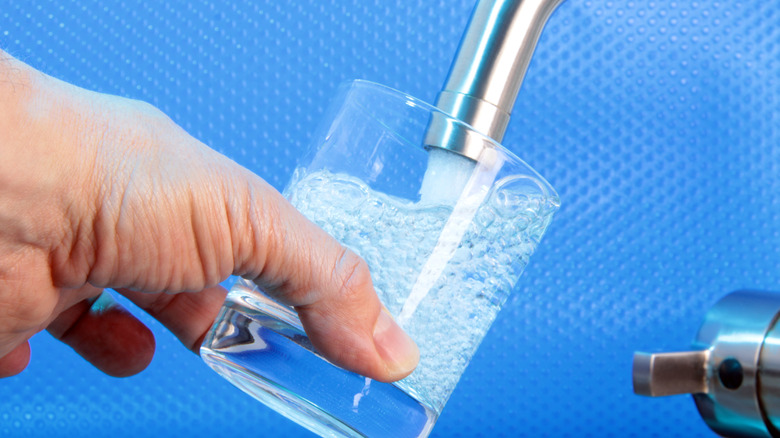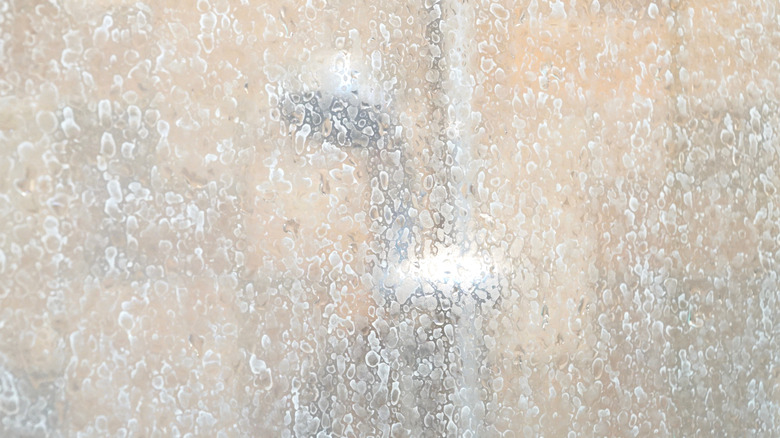What White Flakes In Your Tap Water Really Mean
Water is nature's fruit juice, undoubtedly the purest drink on Earth when done right. So it's not a shock that some people are freaked out by little white specks floating around in an otherwise tall drink of H2O. Who can blame them? With the many underdeveloped countries that lack clean drinking water and the contaminated water crisis in Flint, Michigan, a lot of people are looking critically at this incredibly important compound.
Fortunately, there's no need to freeze when confronted with swirls of tiny white flakes in your tap water. It simply means that you have what's known as "hard" water, which nutritionally isn't a bad thing at all. In fact, it means that the water is dense in nutrients like calcium and magnesium, according to Taste of Home. The higher a water supply's levels of these nutrients, the harder it is. By comparison, "soft" water is lower in these minerals, but higher in sodium. In terms of taste, hard water actually packs extra flavor compared with the average bottle, not to mention an earthy scent.
Is hard water bad for you?
Hard water is not bad for people, according to the U.S. Geological Survey. In fact, magnesium and calcium are both important, essential nutrients. Plus, it's far more dangerous to avoid drinking water, with all the serious risks associated with dehydration, including heatstroke, kidney failure, seizures, and so on. However, hard water can do a number on household items, ranging from mild to pretty serious.
Some of the potential problems associated with hard water are purely cosmetic. They can cause spots on dishes, silverware, and drinking glasses, even after a thorough scrub-down. They can also make glass look cloudy more than clear. When a person washes their hands with soap and hard water, it can leave them feeling a tad slimy, and it's harder to get things like laundry, showers, and such totally clean because soap scum is more likely to form.
Annoying as all that is, the true problem with hard water is the toll it takes on household appliances. The minerals build up in the pipes and faucets, shrinking their flow potential. This can mess with water pressure in the short term, and shorten the lifespan of pipes and other appliances in the long term. Obviously, when things like water heaters are affected, it gets expensive quickly.
This is probably an issue that most Americans will have to deal with at some point, since 85% of homes have hard water, according to HomeWater 101. Even though hard water isn't the best for pipes and such, it's perfectly fine, even beneficial, to drink.

